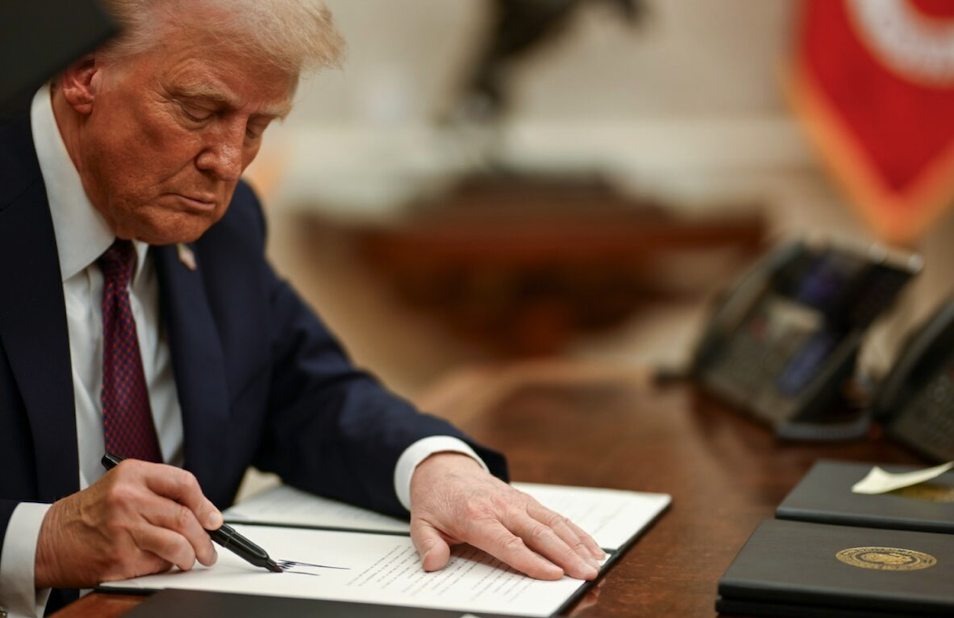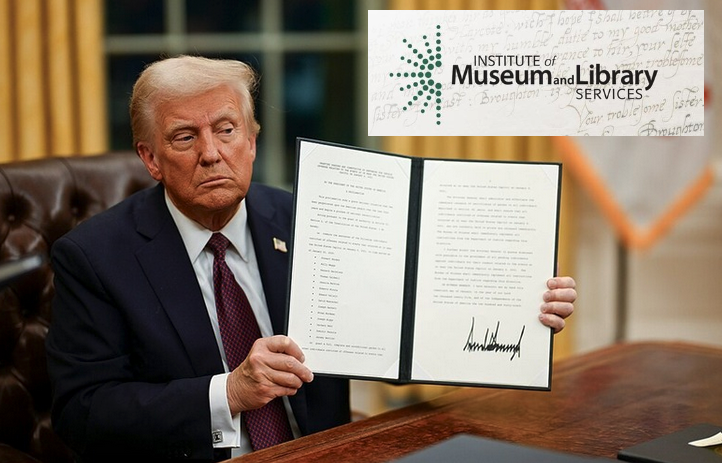In an April 14 filing, the Trump Administration urged a federal court to reject a motion by 21 states to temporarily block the administration’s bid to destroy the Institute of Museum and Library Services, arguing that the states lack standing to pursue the case in federal court, and portraying the dispute over the administration’s mass firings and canceled grants as little more than a contract dispute.
“Some states assert that specific federal grants have been terminated; others anticipate grants may not be renewed; still others complain of anticipated increased costs in the resolution of their labor disputes,” the filing states. “Article III does not permit litigation via such broad strokes… For each form of relief they seek—and as to each Defendant—Plaintiffs must demonstrate their standing. This, Plaintiffs cannot do.”
The filing goes on to argue that any disputes over funding halted by the president must be litigated in the Court of Federal Claims, and that any “personnel claims, like employee terminations and reductions in force,” must first be litigated before “Congressionally designated entities” before they can reach federal court. “Plaintiffs cannot jump the line,” government lawyers argue.
The filing comes after a coalition of 21 state attorneys on April 4 filed an emergency action in federal court in Rhode Island seeking a preliminary injunction to block the Trump administration’s bid to shutter the Institute of Museum and Library Services as well as six other agencies as outlined in a March 14 executive order.
The seven-count complaint argues that the administration’s order and the actions it has since taken to implement it, including the firing of 85% of IMLS staff, are blatantly unconstitutional. “Whatever the President’s policy preferences, he cannot override the congressional enactments that authorize federal agencies, appropriate funds for them to administer, and define how they must operate,” the suit argues.
But in response, the government characterizes its actions as a contract dispute, and argues that under the Tucker Act, the states cannot sue in federal court.
“For purposes of the Tucker Act, Plaintiffs’ grant agreements are contracts because they set out obligations that must be fulfilled in exchange for consideration from the government. Indeed, Congress has made clear that any funds disbursed to grantees like Plaintiffs are paid via grant agreements, i.e. contracts, between the subject agencies and the grantees,” the filing asserts. But Congress did not “directly appropriate funds to the states,” the filing explains, but rather authorized federal agencies to issue grants. “Those grants are contracts, and suits challenging their termination—and Plaintiffs’ demand that the government keep paying funds out from these terminated grants—belong in the Court of Federal Claims.”
The plaintiff states are now set to file a response to the government’s brief by April 16, with a hearing on the motion for a preliminary injunction set to be heard in federal court in Rhode Island on April 18 before Chief Judge John J. McConnell, Jr.
Notably, in a previous suit, McConnell, an Obama appointee, already issued one injunction blocking the Trump Administration’s attempt to freeze as much as $3 trillion in federal funding for programs because they may not comply with the administration’s ideology.



